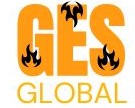Technical aspects
Technical aspects of SEO are just as important, especially as websites become more complex. Search engines need to be able to access and understand your site without obstacles. If pages take too long to load, don’t display well on smartphones, or contain broken links and duplicate content, search engines may lower your rankings or skip your pages altogether. Ensuring your site is fast, secure, mobile-friendly, and easy to navigate helps both users and search engines.




